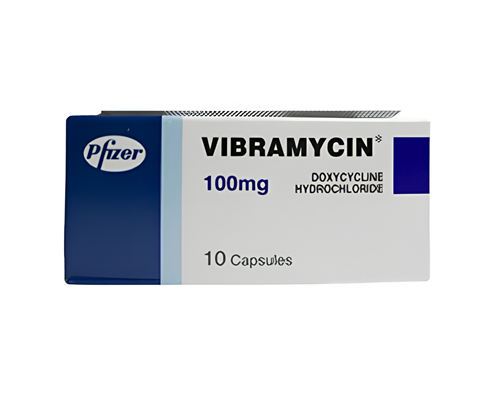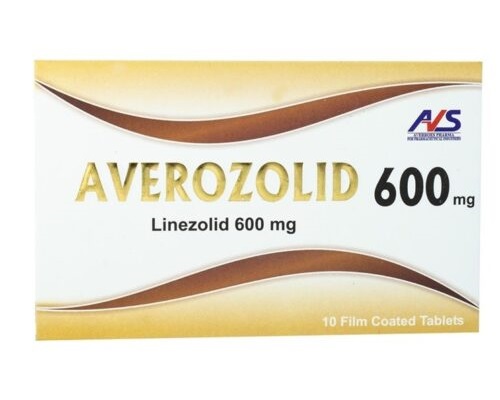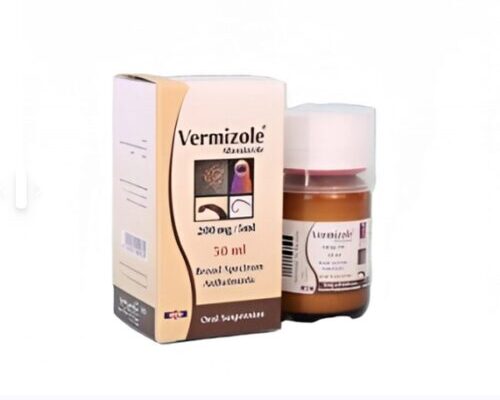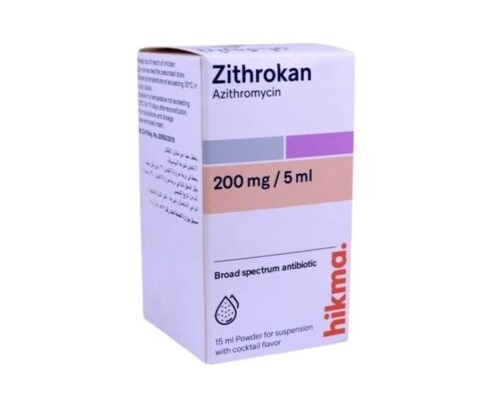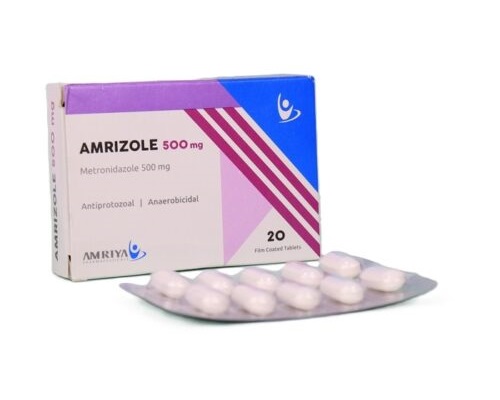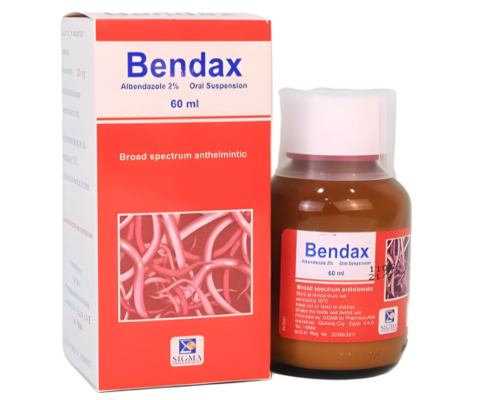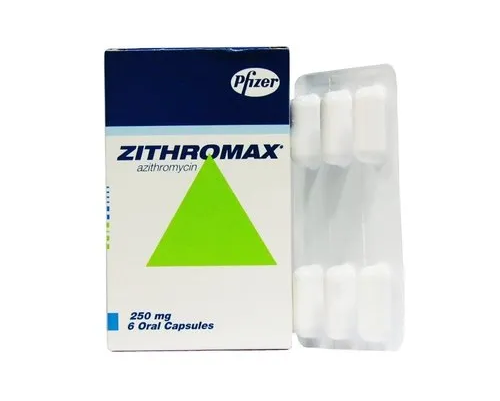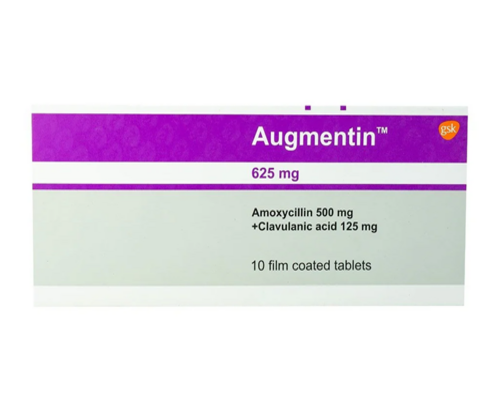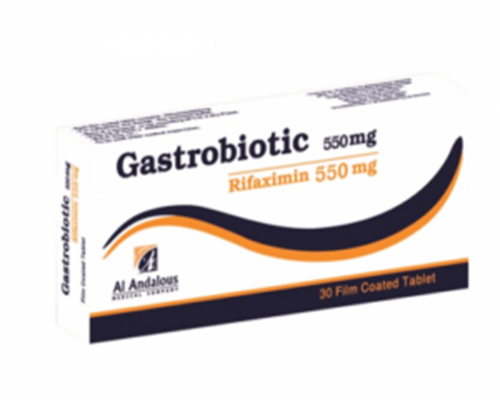Description
Trade name:
Vibramycin
Composition:
Each capsule contains:
Doxycycline cyclate 100 mg
Excipients:
calcium stearate, lactose monohydrate, potato starch.
Composition of the hard gelatin capsule: gelatin, glycerin, purified water, titanium dioxide, sodium lauryl sulfate, dyes: quinoline yellow (E-104), orange-yellow (E-110).
Properties:
A semi-synthetic antibiotic of the tetracycline group with a broad spectrum of action. It has a bacteriostatic effect, inhibiting the synthesis of proteins of pathogenic microorganisms.
Active against aerobic gram-positive bacteria: Staphylococcus spp. (including strains producing penicillinase), Streptococcus spp. (including Streptococcus pneumoniae), Bacillus anthracis, Listeria monocytogenes; anaerobic bacteria: Clostridium spp.
Doxycycline is also active against aerobic gram-negative bacteria: Neisseria gonorrhoeae, Escherichia coli, Shigella spp., Salmonella spp., Enterobacter spp., Klebsiella spp., Bordetella pertussis, as well as against Rickettsia spp., Treponema spp., Mycoplasma spp. and Chlamydia spp.
Pseudomonas aeruginosa, Proteus spp., Serratia spp., and most strains of Bacteroides fragilis are resistant to doxycycline.
Indications:
Infectious and inflammatory diseases caused by microorganisms sensitive to doxycycline, including respiratory and ENT infections; gastrointestinal infections; purulent infections of the skin and soft tissues (including acne); genitourinary infections (including gonorrhea, primary and secondary syphilis); typhus, brucellosis, rickettsiosis, osteomyelitis, trachoma, chlamydia.
Method of administration and dosage:
The recommended daily dose is 200 mg, 1 capsule every 12 hours, on the first day of treatment. After that, 1 capsule per day.
The average course of treatment is 10 days, depending on the indications.
Contraindications:
Pregnancy, children under 8 years of age (possibility of formation of insoluble complexes with calcium in the skeletal system, enamel and dentin of teeth), hypersensitivity to tetracyclines, porphyria, severe liver failure, leukopenia, lactation period, myasthenia (for intravenous administration).
Precautions:
Doxycycline should be used with caution in case of liver dysfunction. No dose adjustment is required in case of renal dysfunction.
To prevent local irritant effects (esophagitis, gastritis, gastrointestinal ulceration), it is recommended to take the drug during the daytime with plenty of liquid, food or milk. Due to the possible development of photosensitivity, it is necessary to limit insolation during treatment and for 4-5 days after it.
Doxycycline is not used in children under 8 years of age, since tetracyclines (including doxycycline) cause long-term discoloration of teeth, enamel hypoplasia and slowing of longitudinal bone growth in this category of patients.
Side effects:
From the digestive system: nausea, vomiting, anorexia, abdominal pain, diarrhea, constipation, dysphagia, glossitis, esophagitis, transient increase in the blood levels of liver transaminases, alkaline phosphatase, bilirubin.
From the hematopoietic system: neutropenia, thrombocytopenia, hemolytic anemia.
Allergic reactions: skin rash, itching, eosinophilia; rarely – Quincke’s edema, photosensitivity.
Others: increased residual nitrogen, candidiasis, intestinal dysbacteriosis, discoloration of teeth in children.
Storage method:
Store at a temperature not exceeding 30 degrees in a dry place.
Packaging:
A cardboard box contains 2 blisters of 5 capsules, paper instructions.

